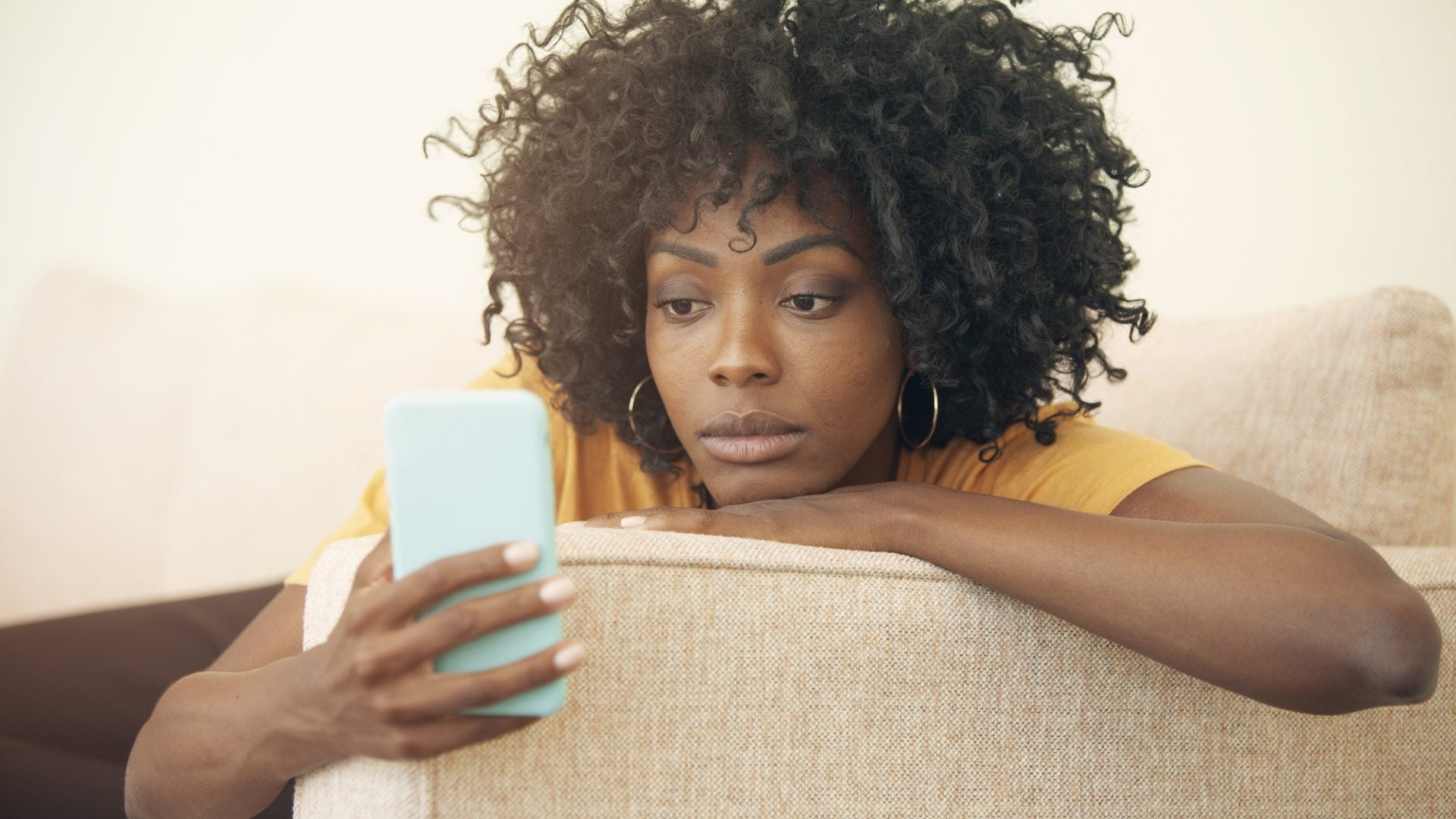
It’s never the wrong time of day or year to take a moment to discuss your mental health and how to nurture it. From front line workers to top athletes, we know that chronic stress can affect anyone. Learning how to avoid stressors in your life, identify when they’re getting the best of you or help someone else in trouble can all be helpful tools in our mental health toolboxes.
As part of Nike’s continued efforts to remind people that mental health wellness is equally as vital as physical health when it comes to allowing athletes to meet their full potential, Nike has now partnered with non-profit organization Crisis Text Line, which offers real time mental health support to those in need via text-messaging—a service many professional athletes can rely on for around the clock support.
Last week, during Nike’s virtual panel, fitness and wellness coach Angela Manuel-Davis moderated a conversation between Crisis Text Line’s Chief Transformation Officer Dr. Shairi Turner and athletes Laurie Hernandez, Scout Basset, and Hayden Hurst, who all shared their own personal journeys with mental health. During the event, ESSENCE sat down with Davis and Turner to dig deeper into their personal thoughts on mental health and being in crisis and discussed the role mental health plays in our everyday wellness.
Navigating the world can be stressful and those feelings can often be ongoing. How can you tell when you’re in crisis versus just going through a difficult moment? Many people can have the tendency to wait until they’re at their lowest point to seek help, but the goal is to not get there. “We don’t have to wait until we are at rock bottom,” says Dr. Turner.
Being honest with yourself is the first step. Take a deeper assessment of your mental health status any chance you get. “I hope we start to see people reach out for mental health support before they’re at a level of being in crisis,” Turner shares. “When they’re just thinking, hey, I’m not really interested in the things that used to make me excited. My home is falling apart. My eating patterns have changed. All those things are your mind saying, I need a checkup. I need some assistance here. The mind and body are connected and it’s so important to have that mental health checkup like we have that physical health checkup and to not wait until we are at our deepest darkest periods of time to seek assistance.”
As women, it’s also important for us to understand that stress can show up differently for us. “Physiologically stress affects us all,” Dr. Turner shares. “Cortisol in our body—the hormone that’s released when we are stressed, effects all of our organs—our brain, our heart, our kidneys. I think the difference between men and women in situations of stress is how it presents.” While there is no one rule here, there are some signs to consider when identifying how stress may be showing up in your life.
“We may see differences in how men actualize their stress, whether it comes in anger versus sadness versus anxiety,” Dr. Turner continues. “Women may present with anxiety and depression related to stress and for men it may come through in anger and more physical forms but everyone’s body internalizes the stress. How it comes out can be very unique. The key is to really figure out when we’re stressed, what are the triggers to make us feel stressed and how does it manifest within our bodies? Women get angry too. Men get depressed too.”
Just one look at the news cycle will show just how stressful it can be to be Black in America with current racial tension. For wellness leader Davis, she’s clear on how she stays focused and positive when those daily stresses hit home.
“[I do so] by truly understanding that I am not given more than I can handle,” Davis shares. “Also by believing that I am equipped to be alive in this most extraordinary moment in human history. Lastly, I realize that there is positive change and impact that I have the power to make in this world, so I choose to do so.”
Not only can you help yourself, but you can also make a difference by helping someone else in need and helping them feel supported, says Turner.
“When people come for help, it’s so important that they not feel alone,” she insists. “To be with someone in a moment of a crisis, there’s nothing like that. There’s nothing like that for you as the support person and there’s nothing like that for the person who’s asking. In those moments, just let the person who comes to, your friend, your family member, just know they’re not alone. Sometimes helping them to seek the professional support, to find a therapist, to reach out to Crisis Text Line can be that very important first step.”
When someone reaches out to you for support, Turner suggests using phrases like “I’m here”, “I’m listening” or “I’m with you.” You should also emphasize that you can do so without being judgmental.






Community can be a powerful tool, turner insists, and we must use its power to help each other.
“if we stay alone in our grief and our sadness it becomes this kind of echo chamber within us, but when we’re able to come together and speak and cry and emote and acknowledge, that’s when the healing can start,” says Turner.
Click here to learn more about getting real-time help if you feel that you or someone you love is in crisis.







